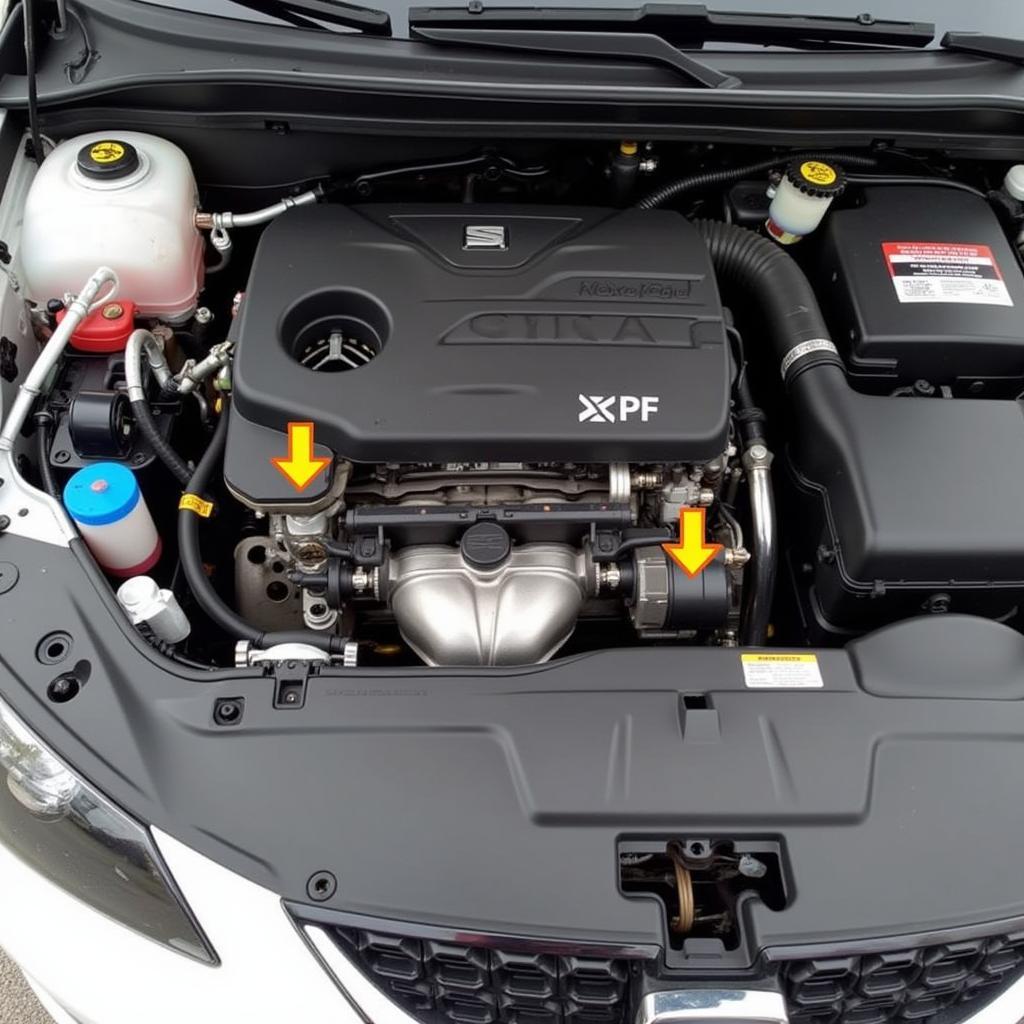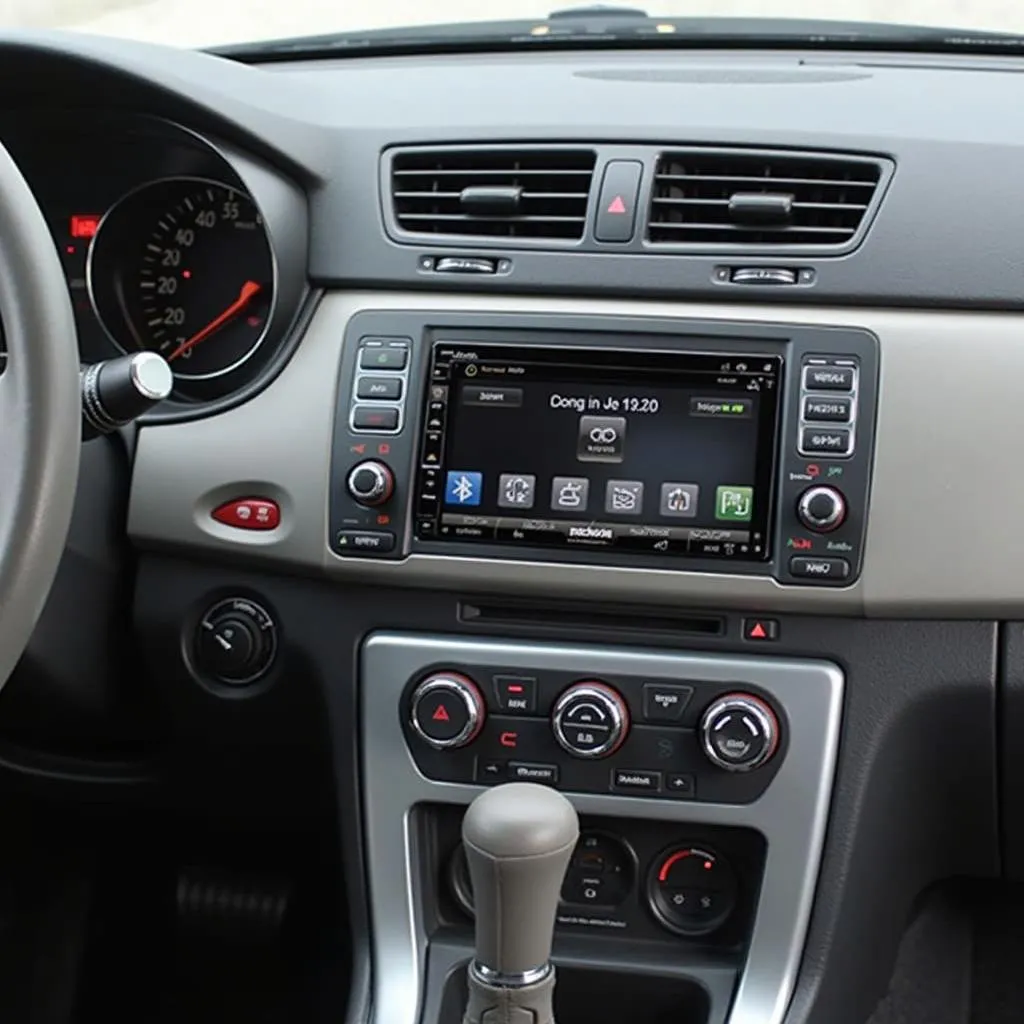When your Subaru’s brake warning light starts flashing, it’s a clear indication that something is amiss with your braking system. This blinking light could be a minor inconvenience or a serious safety concern, depending on the underlying cause. Understanding why the light is flashing is crucial for taking the right steps to address the problem and ensure safe driving.
This article will provide a comprehensive guide to understanding why your Subaru’s brake warning light might be flashing, how to diagnose the issue, and the possible solutions. We’ll also explore common questions related to flashing brake lights and offer expert advice from experienced Subaru technicians.
Common Causes of a Flashing Brake Warning Light
Several factors can trigger the flashing brake warning light in your Subaru. Here are some of the most common causes:
1. Low Brake Fluid Level
A low brake fluid level is a serious concern that should be addressed immediately. The brake fluid serves as a hydraulic medium that transfers pressure from the brake pedal to the calipers, which then press the brake pads against the rotors. When the fluid level drops below the minimum mark, it can affect brake performance and potentially lead to brake failure.
Expert Tip: “Always check your brake fluid level regularly and keep it topped up to prevent the brake warning light from flashing.” – John Smith, Certified Subaru Mechanic
2. Brake Pad Wear
Brake pads wear down over time due to friction generated during braking. When the pads become thin, a sensor embedded within the pad assembly triggers the brake warning light. This warning signals that your brake pads need replacement.
3. Faulty Brake Sensor
The brake pad wear sensor can malfunction, causing the warning light to flash even if the pads are not worn out. A damaged or faulty sensor requires replacement.
4. Air in the Brake Lines
Air in the brake lines can compromise brake pressure, resulting in a spongy brake pedal and a flashing warning light. This issue often arises after brake fluid changes or repairs.
5. Faulty ABS Module
The Anti-lock Braking System (ABS) module is responsible for preventing wheel lock during braking. A faulty ABS module can lead to various malfunctions, including a flashing brake warning light.
6. Electrical Issues
Problems with the wiring or electrical components related to the brake system, including the brake light switch, can trigger the warning light.
Diagnosing the Issue
Diagnosing the cause of a flashing brake warning light requires a systematic approach. Here’s how you can start troubleshooting:
1. Check Brake Fluid Level
Start by checking the brake fluid level in the reservoir. If the level is low, add brake fluid of the correct type as specified by your Subaru’s owner’s manual. Be cautious when handling brake fluid as it is corrosive.
2. Inspect Brake Pads
Visually inspect the brake pads on all four wheels. If the pads are worn down, replace them with new ones.
3. Scan for Diagnostic Codes
Use a code reader to scan for any fault codes stored in the vehicle’s computer system. This can help identify potential electrical issues or problems with the ABS module.
4. Test Brake Pedal Feel
Press the brake pedal firmly. If the pedal feels spongy or soft, there might be air in the brake lines. Bleed the brakes according to your Subaru’s owner’s manual.
5. Check for Wiring Problems
Inspect the brake light switch and any wiring related to the brake system for signs of damage, corrosion, or loose connections.
Solutions for a Flashing Brake Warning Light
Once you’ve identified the cause of the flashing brake warning light, you can take appropriate action:
1. Replenish Brake Fluid
If the brake fluid level is low, refill the reservoir with the correct type of fluid.
2. Replace Brake Pads
If the brake pads are worn, replace them with new ones. This is a job best left to a qualified mechanic.
3. Repair or Replace Brake Sensor
If the brake pad wear sensor is faulty, repair or replace it.
4. Bleed the Brakes
If there’s air in the brake lines, bleed the brakes to remove the air.
5. Replace ABS Module
If the ABS module is faulty, replace it with a new one. This is a complex task that requires specialized tools and expertise.
6. Repair Electrical Issues
If the issue stems from electrical problems, repair or replace the affected components.
FAQ: Flashing Brake Warning Light in Subaru
Q: What does it mean when my Subaru’s brake warning light is flashing?
A: A flashing brake warning light indicates a problem with your braking system. The specific issue can vary, but it’s crucial to address the problem promptly to ensure safe driving.
Q: Is it safe to drive with a flashing brake warning light?
A: It’s generally not safe to drive with a flashing brake warning light. The issue could be minor, but it could also be a sign of a serious braking problem. It’s best to stop driving and have the problem diagnosed and fixed by a qualified mechanic.
Q: How much does it cost to fix a flashing brake warning light?
A: The cost of fixing a flashing brake warning light can vary depending on the underlying cause and the complexity of the repair. It could range from a simple brake fluid refill to a costly ABS module replacement.
Q: Can I reset the brake warning light myself?
A: While some models might have a way to reset the light temporarily, it’s best to address the underlying issue rather than just resetting the light.
Q: When should I take my Subaru to a mechanic for a flashing brake warning light?
A: It’s best to take your Subaru to a mechanic as soon as you notice a flashing brake warning light. Early diagnosis and repair can prevent further damage and ensure your safety on the road.
Conclusion
A flashing brake warning light in your Subaru should not be ignored. It’s a clear indicator of a potential issue within your braking system that requires immediate attention. By understanding the common causes, diagnosing the problem, and implementing the right solutions, you can ensure safe and reliable braking performance in your Subaru. Always prioritize safety and consult a qualified mechanic if you are unsure about addressing the issue.


